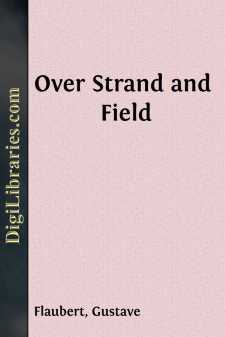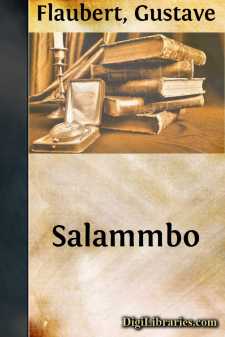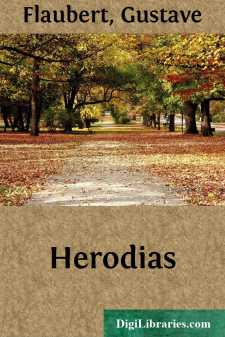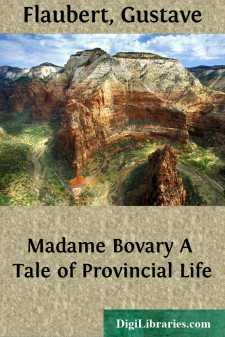Categories
- Antiques & Collectibles 13
- Architecture 36
- Art 48
- Bibles 22
- Biography & Autobiography 813
- Body, Mind & Spirit 142
- Business & Economics 28
- Children's Books 17
- Children's Fiction 14
- Computers 4
- Cooking 94
- Crafts & Hobbies 4
- Drama 346
- Education 46
- Family & Relationships 57
- Fiction 11829
- Games 19
- Gardening 17
- Health & Fitness 34
- History 1377
- House & Home 1
- Humor 147
- Juvenile Fiction 1873
- Juvenile Nonfiction 202
- Language Arts & Disciplines 88
- Law 16
- Literary Collections 686
- Literary Criticism 179
- Mathematics 13
- Medical 41
- Music 40
- Nature 179
- Non-Classifiable 1768
- Performing Arts 7
- Periodicals 1453
- Philosophy 64
- Photography 2
- Poetry 896
- Political Science 203
- Psychology 42
- Reference 154
- Religion 513
- Science 126
- Self-Help 84
- Social Science 81
- Sports & Recreation 34
- Study Aids 3
- Technology & Engineering 59
- Transportation 23
- Travel 463
- True Crime 29
Gustave Flaubert
Gustave Flaubert (1821-1880) was a French novelist renowned for his precise literary style and profound influence on realist literature. He is best known for his masterpiece "Madame Bovary," which depicts the tragic life of Emma Bovary and critiques the bourgeois society of his time. Flaubert's meticulous approach to writing, often spending days perfecting a single sentence, set a high standard for literary craftsmanship.
Author's Books:
Sort by:
by:
Gustave Flaubert
CHAPTER I THE CURSE Julian's father and mother dwelt in a castle built on the slope of a hill, in the heart of the woods. The towers at its four corners had pointed roofs covered with leaden tiles, and the foundation rested upon solid rocks, which descended abruptly to the bottom of the moat. In the courtyard, the stone flagging was as immaculate as the floor of a church. Long rain-spouts,...
more...
by:
Gustave Flaubert
A Dinner and a Duel. rederick passed the whole of the next day in brooding over his anger and humiliation. He reproached himself for not having given a slap in the face to Cisy. As for the Maréchale, he swore not to see her again. Others as good-looking could be easily found; and, as money would be required in order to possess these women, he would speculate on the Bourse with the purchase-money of...
more...
by:
Gustave Flaubert
CHAPTER I. CHÂTEAU DE CHAMBORD. We walked through the empty galleries and deserted rooms where spiders spin their cobwebs over the salamanders of Francis the First. One is overcome by a feeling of distress at the sight of this poverty which has no grandeur. It is not absolute ruin, with the luxury of blackened and mouldy débris, the delicate embroidery of flowers, and the drapery of waving vines...
more...
by:
Gustave Flaubert
CHAPTER I THE FEAST It was at Megara, a suburb of Carthage, in the gardens of Hamilcar. The soldiers whom he had commanded in Sicily were having a great feast to celebrate the anniversary of the battle of Eryx, and as the master was away, and they were numerous, they ate and drank with perfect freedom. The captains, who wore bronze cothurni, had placed themselves in the central path, beneath a...
more...
by:
Gustave Flaubert
A Holy Saint. T is in the Thebaïd, on the heights of a mountain, where a platform, shaped like a crescent, is surrounded by huge stones. The Hermit's cell occupies the background. It is built of mud and reeds, flat-roofed and doorless. Inside are seen a pitcher and a loaf of black bread; in the centre, on a wooden support, a large book; on the ground, here and there, bits of rush-work, a mat or...
more...
by:
Gustave Flaubert
CHAPTER I In the eastern side of the Dead Sea rose the citadel of Machaerus. It was built upon a conical peak of basalt, and was surrounded by four deep valleys, one on each side, another in front, and the fourth in the rear. At the base of the citadel, crowding against one another, a group of houses stood within the circle of a wall, whose outlines undulated with the unevenness of the soil. A zigzag...
more...
by:
Gustave Flaubert
CHAPTER I. Kindred Souls. As there were thirty-three degrees of heat the Boulevard Bourdon was absolutely deserted. Farther down, the Canal St. Martin, confined by two locks, showed in a straight line its water black as ink. In the middle of it was a boat, filled with timber, and on the bank were two rows of casks. Beyond the canal, between the houses which separated the timber-yards, the great pure...
more...
by:
Gustave Flaubert
INTRODUCTION The correspondence of George Sand and Gustave Flaubert, if approached merely as a chapter in the biographies of these heroes of nineteenth century letters, is sufficiently rewarding. In a relationship extending over twelve years, including the trying period of the Franco-Prussian War and the Commune, these extraordinary personalities disclose the aspects of their diverse natures which are...
more...
by:
Gustave Flaubert
CHAPTER I For half a century the housewives of Pont-l'Eveque had envied Madame Aubain her servant Felicite. For a hundred francs a year, she cooked and did the housework, washed, ironed, mended, harnessed the horse, fattened the poultry, made the butter and remained faithful to her mistress—although the latter was by no means an agreeable person. Madame Aubain had married a comely youth without...
more...
by:
Gustave Flaubert
CRITICAL INTRODUCTION Domi mansit, lanam fecit: "He remained at home and wrote," is the first thing that should be said of Gustave Flaubert. This trait, which he shares with many of the writers of his generation,—Renan, Taine, Leconte de Lisle and Dumas fils,—distinguishes them and distinguishes him from those of the preceding generation, who voluntarily sought inspiration in disorder and...
more...











